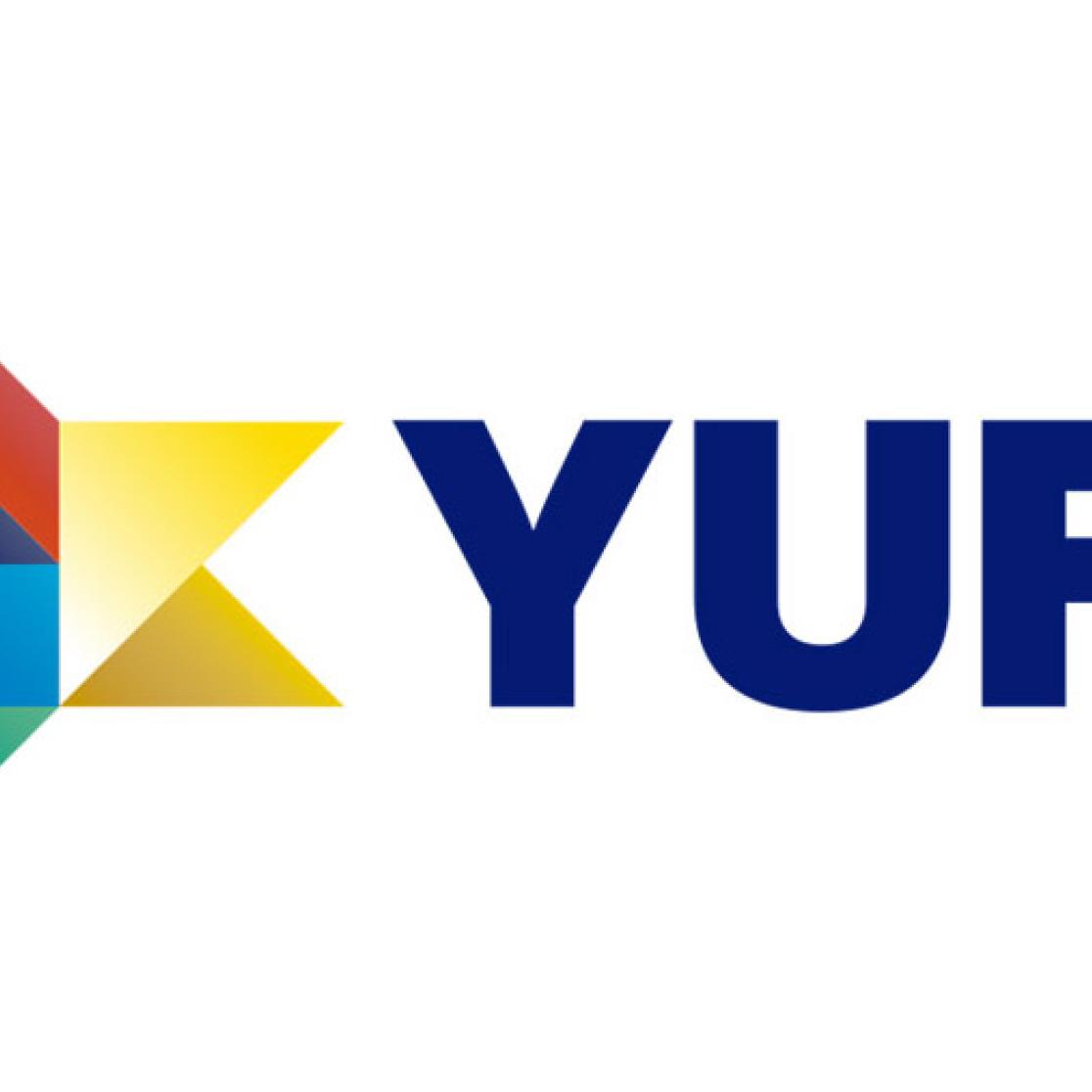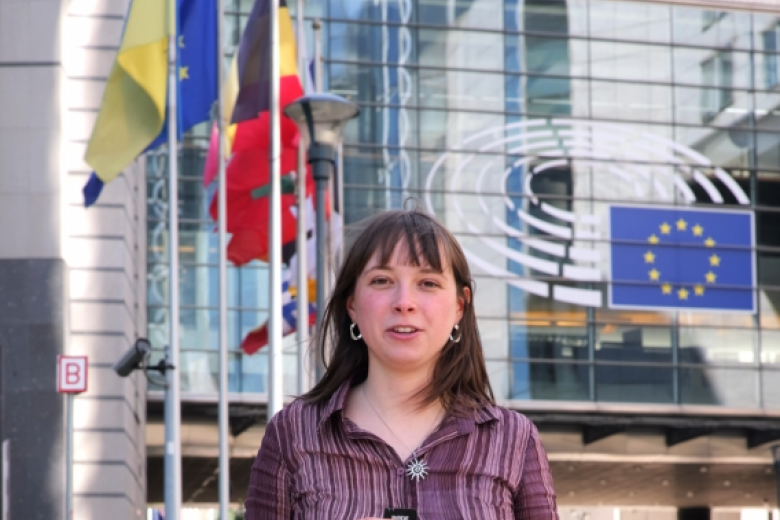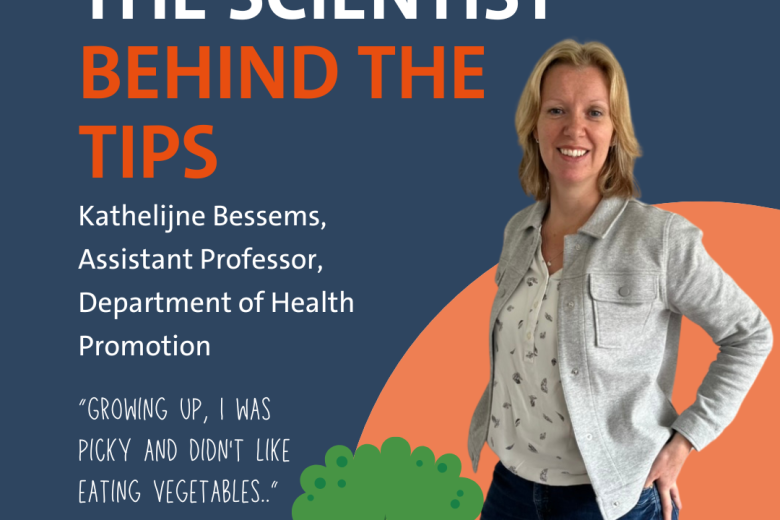YUFE – the making of
In 2019, Young Universities for the Future of Europe (YUFE), a UM-led alliance, was judged the most promising answer to the European Commission’s call to develop and implement the first model for a European University. YUFE Director Daniela Trani on why and how she wants to change European higher education.
An entirely new study experience with personalised curricula? An unparalleled degree of mobility with study modules and internships across 10 countries and full integration into local communities? What YUFE promises to be is truly tremendous – as was the effort to make it all come true under the most testing of circumstances.
YUFE director Daniela Trani was delighted when the first cohort started in summer 2020. “We want students from all backgrounds, regardless of their social background, income and education level of their parents. We need to build a system where the costs of travelling and living abroad do not deter students.” She herself had always wanted to go abroad – her parents had never left the country – but she couldn’t afford an ERASMUS semester.
Neapolitan cosmopolicies
Going abroad for her postgraduate education was crucial for her. “The biggest challenges and opportunities are outside your comfort zone – that’s where you learn who you are and what you can do.” The Neapolitan native studied Physics and finally left Italy, if not earth, to pursue a PhD in Thoracic Oncology and Applied Biotechnology in Philadelphia, after which she moved to Georgetown University in Washington DC for a postdoc in space radiation biology. Trani came to the Netherlands as a scientist, but became a policy advisor in the hope of making a difference outside the lab.
“You need to experience other ways of thinking; that makes it easier to be open for and respectful of different perspectives.” She wants YUFE to bring this experience to everyone who wants it - for the sake of Europe. Elites whose wealth already grants them access to a borderless European education are “part of a selective international reality not sufficiently representative of society as a whole.”
Full immersion into societies as they are and ways of reducing the costs of this experience go hand in hand. In Maastricht, there are already schemes allowing students to contribute to their community in exchange for reduced rent or pairing them with elderly people. “Within the YUFE alliance, we are sharing ideas and best practices and see what works best where. It’s about experimenting and developing new concepts and solutions – but also about being pragmatic and building on many good practices already implemented by different partners and their local communities.”
Right up our European alley
She and her Academic Affairs colleagues supported the UM Executive Board to seize the opportunity and take the lead. The Young European Research Universities Network, founded by UM and others, facilitates cooperation in research, education and service to society. The shared values among the network made it an ideal hunting ground for allies.
“Initially, the call was restricted to a maximum of six partners but we wanted to go for strength in diversity.” YUFE also tried to be geographically inclusive. “The University of Cyprus had been performing very well in European-funded research innovation initiatives. As a young and dynamic university of geopolitical significance, they were a good fit.”
Trani was delighted when the universities of Torún and Rijeka also became academic partners to provide an Eastern European and Western Balkan perspective respectively. “We chose our other partners to complement our vision and what we wanted to achieve e.g. in terms of employability, online learning, extra-curricular competences as well as increased access to higher education for non-traditional learners.”
Text: Florian Raith

‘UM & Europe’ in the spotlight
2022 marks the 30th anniversary of the Maastricht Treaty; time to take stock of European integration. Moreover, a special conference on the future of Europe is scheduled in Maastricht from 11 to 13 February 2022. Plenty of reasons for the European university of the Netherlands to launch a new series of stories, and to publish an overview of all of our 'UM and Europe' information. Read more.

Would you like more information about YUFE? Read more here.
Also read
-
Europe Day
To celebrate Europe Day on 9 May, FASoS student Lisa travelled to Brussels to meet with five of our inspiring alumni who are currently shaping European policy and advocacy. In this video, they share why Europe Day matters, how it’s celebrated in Brussels, and what the idea of Europe means to them.

-
The Green Office Catalyses Circularity Projects’ Autonomy
This semester, the Green Office cultivated the untapped potential of the Community Garden and the Clothing Swap Room. We hope that these Circularity Projects will operate under autonomous, functional organisations by this time next year, with continued support from the Green Office and the SUM2030...
-
Evidence-based health tips for students: the science of eating healthy
In the upcoming months, we’ll share tips on Instagram for our students on how to live a healthier life. Not just a random collection, but tips based on actual research happening at our faculty. The brains behind this idea are Lieve Vonken and Gido Metz, PhD candidates at CAPHRI, the Care and Public...

